Condensing vs Non Condensing Tankless Water Heaters: What are the Differences?
When it comes to tankless water heaters, homeowners often face a choice between condensing and non-condensing models. Both options come with their own set of advantages, making it crucial to grasp the distinctions between them before settling on one. This informative article aims to offer a thorough comparison of condensing and non-condensing tankless water heaters, equipping readers with the knowledge they need to select the ideal heater for their particular living environment and needs.

What is a tankless water heater and how does it work?
There are two primary categories of water heaters: traditional models with storage tanks and tankless designs. Traditional water heaters operate by storing a significant volume of water in a tank, maintaining a constant temperature. On the other hand, tankless water heaters function by heating water instantly as it passes through a heat exchanger, eliminating the requirement for a storage tank. This efficient method not only saves space but also reduces energy consumption.

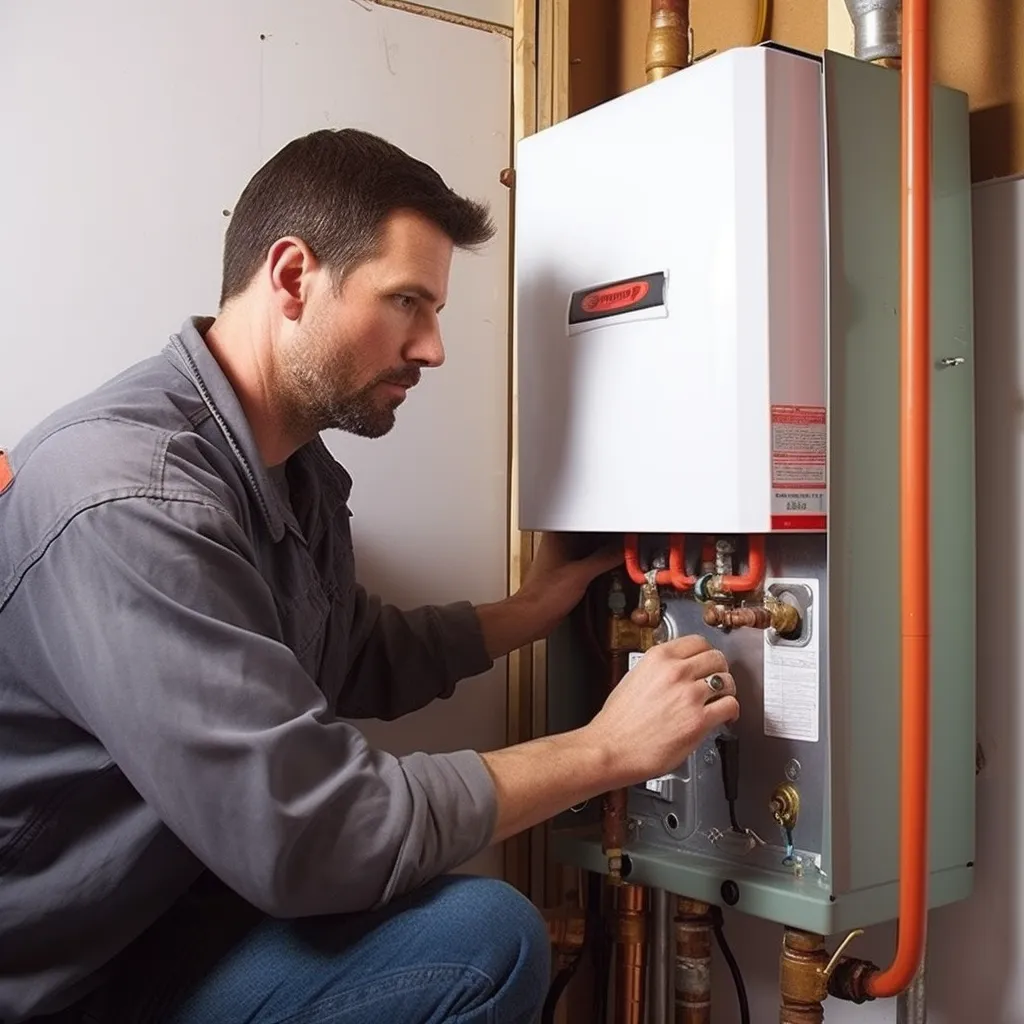
What is a condensing tankless water heater?
The condensing tankless water heater is an advanced and efficient upgrade from traditional tankless models. By capturing and reusing waste heat, it effectively heats incoming water, maximizing efficiency and minimizing energy waste. This leads to substantial cost savings on your energy bill while also reducing your carbon footprint, making it an eco-friendly choice.
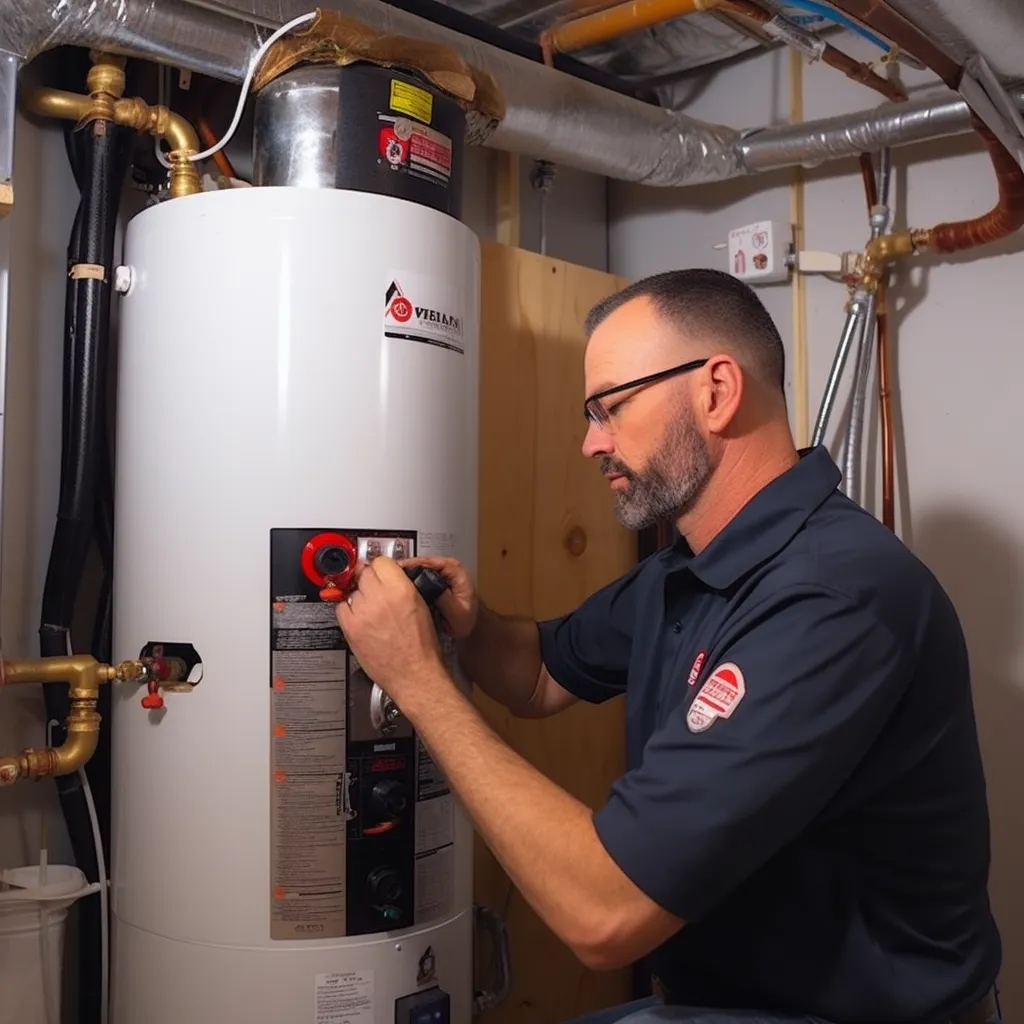
What are the differences: condensing vs non condensing tankless water heaters
Tankless water heaters are a top-notch option when it comes to reducing energy costs. However, it's crucial to grasp the dissimilarity between condensing and non-condensing models. The primary difference lies in their approach to exhaust gases. Non-condensing models release these gases directly into the atmosphere, whereas condensing models cool them down until they condense into water vapor, which is then expelled. This innovative process makes condensing models not only more energy-efficient but also more efficient overall when compared to non-condensing counterparts. Although condensing models may involve higher upfront costs, they offer substantial long-term savings by effectively reducing energy expenses.
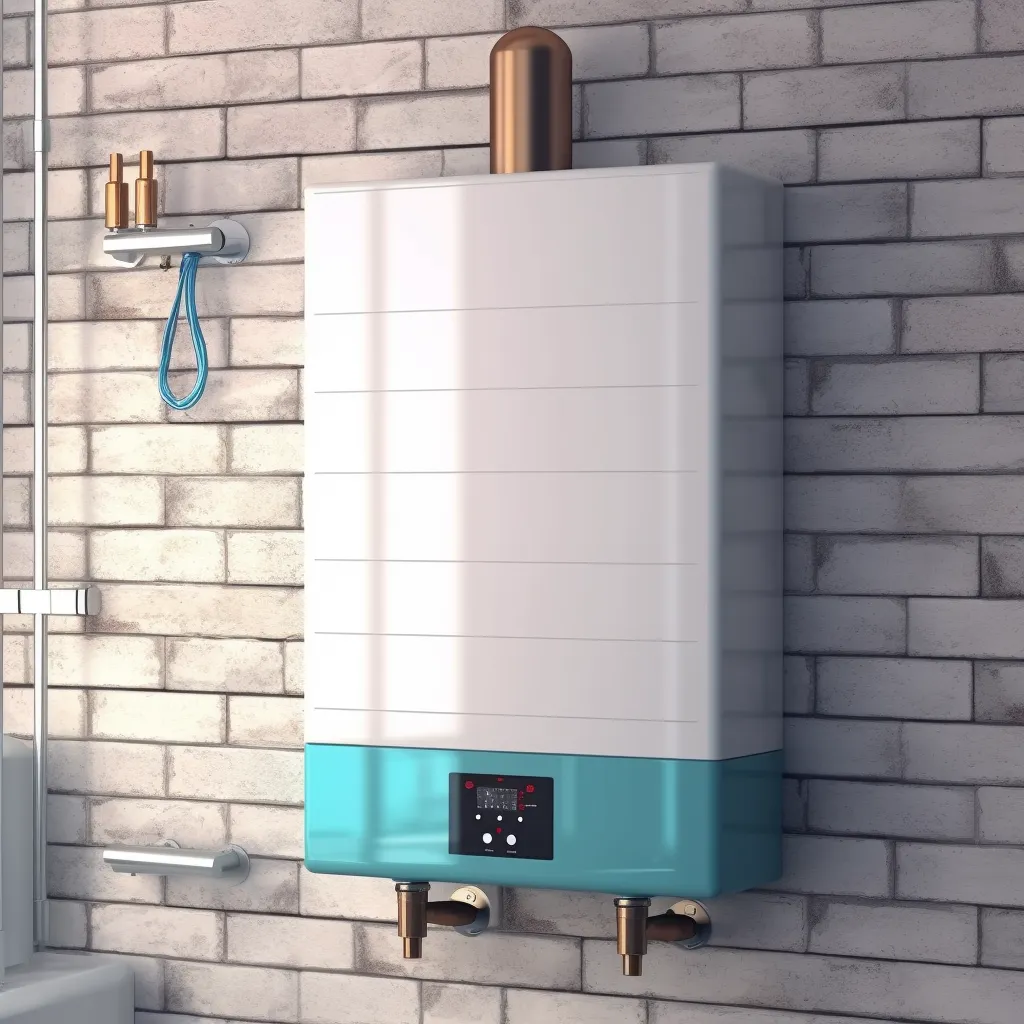
What are the benefits
of a condensing tankless water heater?
Condensing tankless water heaters offer numerous advantages over non-condensing counterparts:
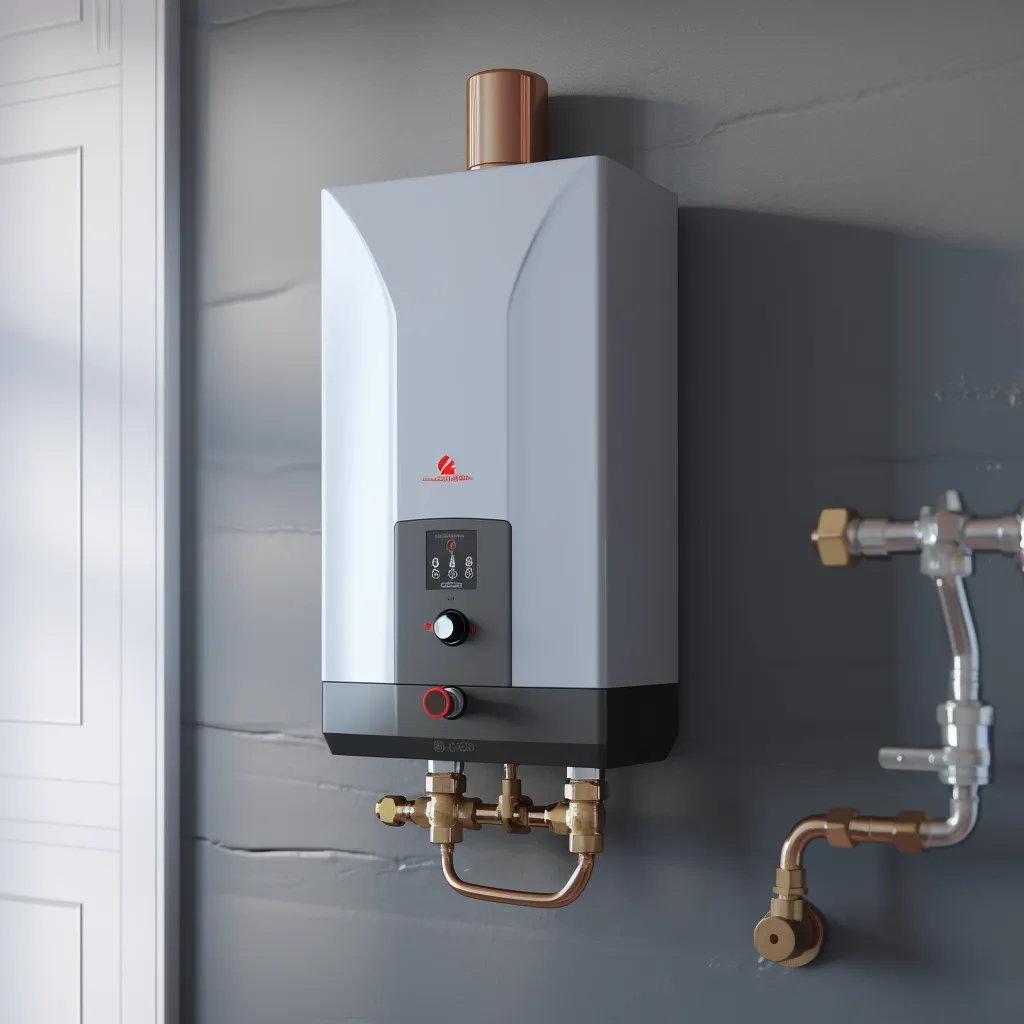
They are highly efficient, resulting in significant cost savings on utility bills by effectively utilizing waste heat from exhaust gases and extracting more energy from the fuel source.
They are environmentally friendly, producing fewer greenhouse gas emissions and contributing to a greener home.
Condensing water heaters have a longer lifespan due to their simplified design with fewer components, resulting in enhanced reliability and consistent hot water supply over an extended period.
What are the disadvantages
of a condensing tankless water heater?
The downsides to condensing tankless water heaters:
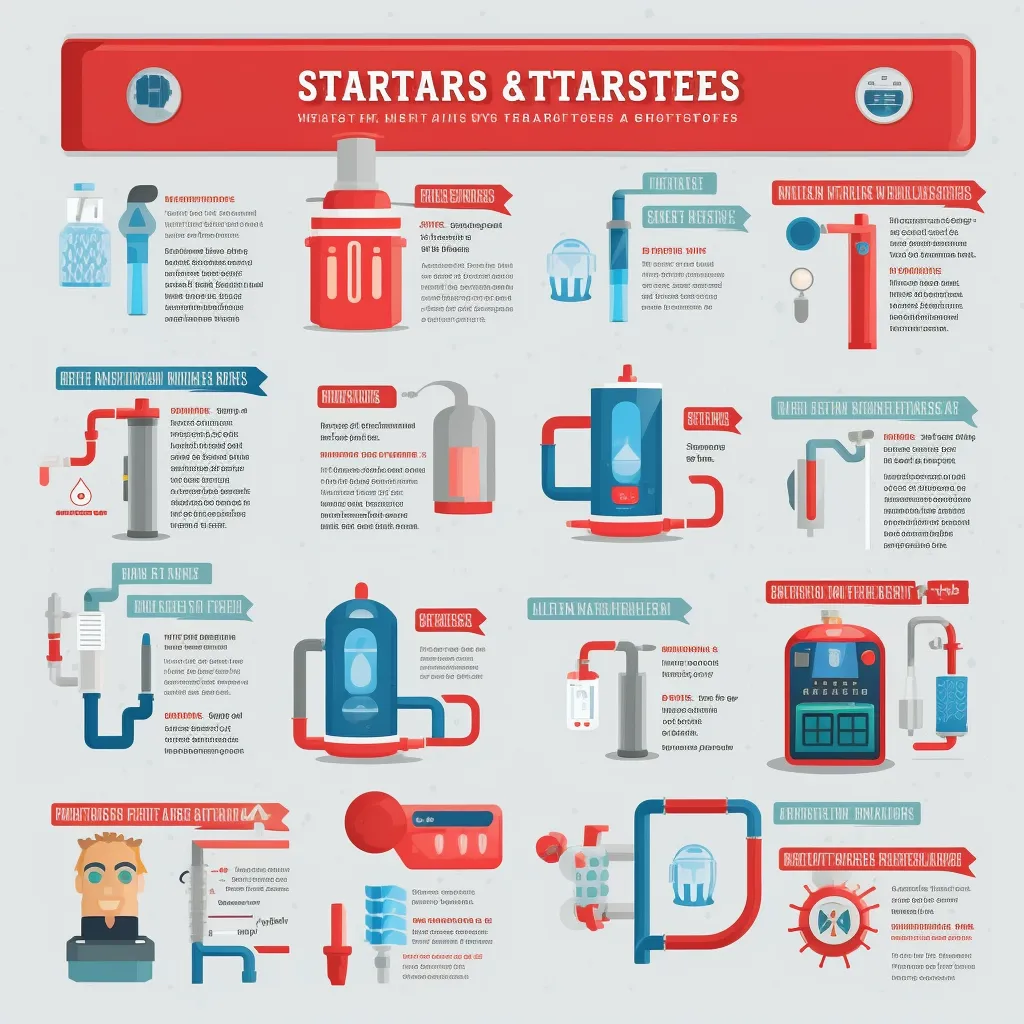
These models tend to come with a higher price tag compared to non-condensing ones. However, it's essential to weigh this upfront cost against the potential long-term savings in terms of energy efficiency and reduced utility bills.
Another aspect to keep in mind is that condensing models may necessitate more maintenance and involve greater installation complexity. This is mainly due to the additional requirements related to venting and drainage systems.
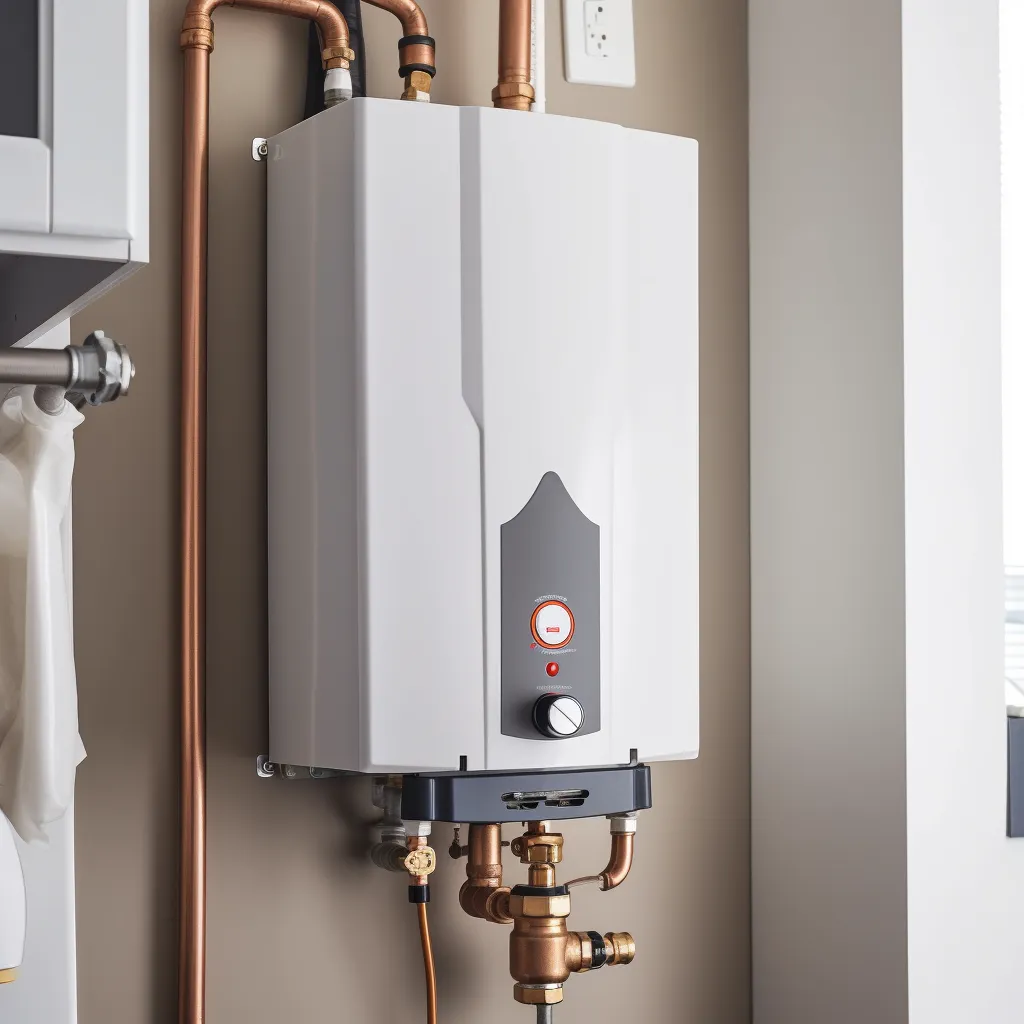
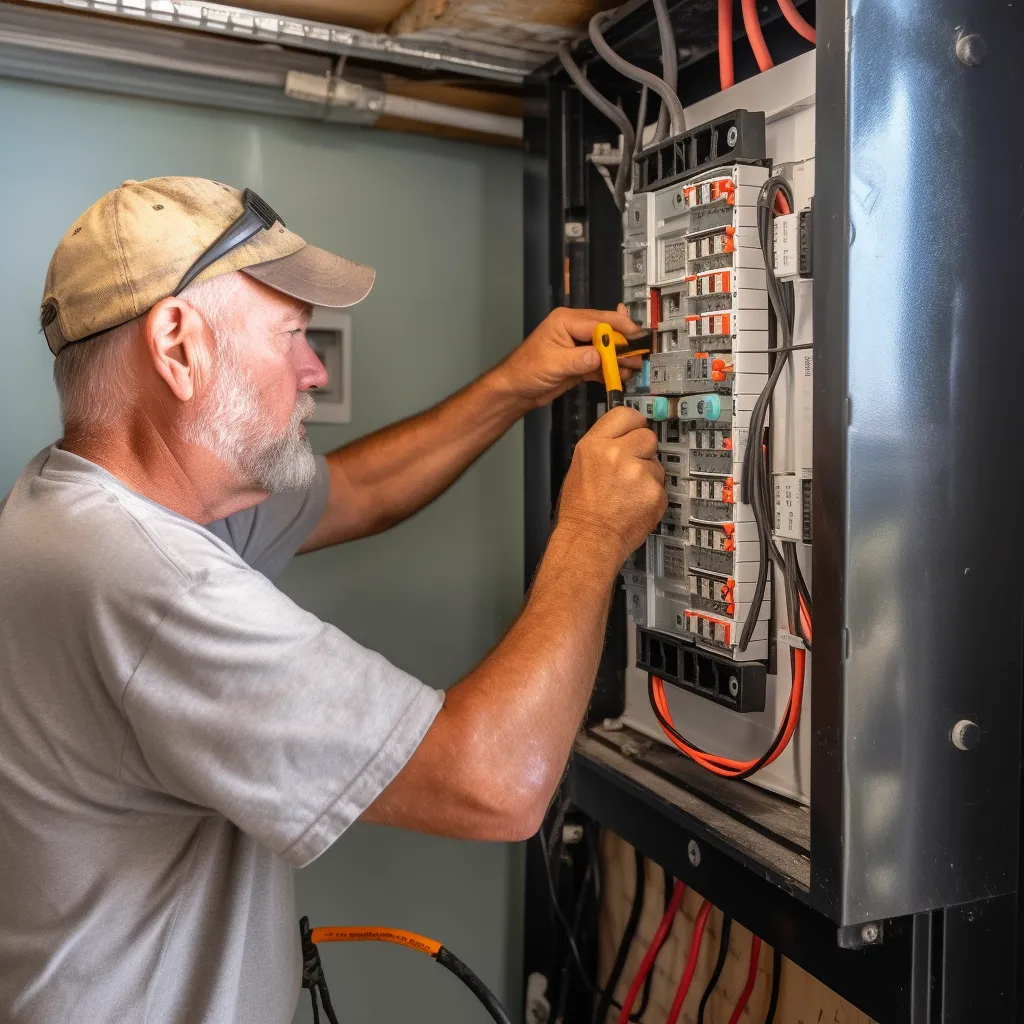
Are condensing tankless water heaters energy-efficient?
Condensing tankless water heaters provide an intelligent and eco-friendly solution for heating water with their high efficiency, reaching up to 96%. They capture and utilize lost heat during combustion, resulting in energy conservation and significant long-term savings. Operating on-demand, these water heaters only heat water when necessary, reducing expenses and minimizing environmental impact. By opting for a condensing tankless water heater, homeowners can enjoy efficient water heating, cost savings, and contribute to a greener environment.
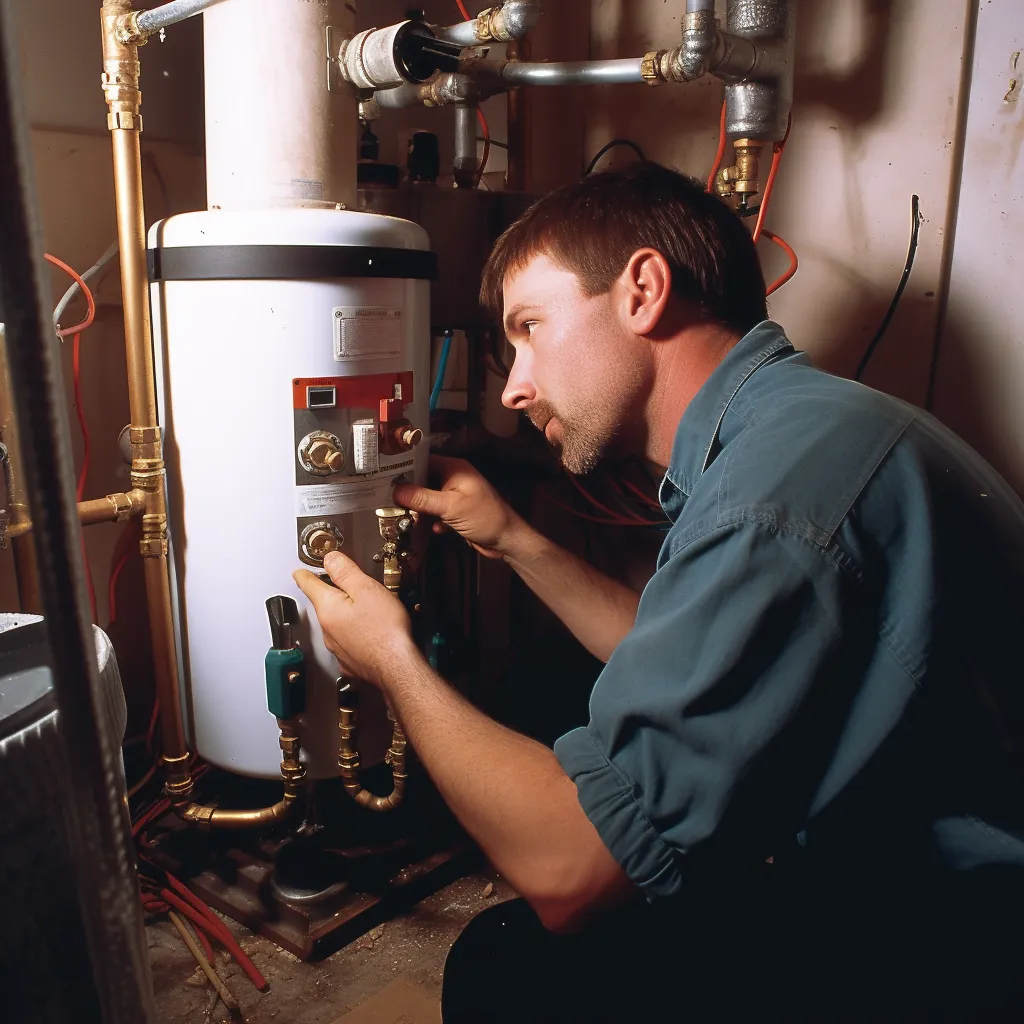
Are non condensing tankless water heaters energy-efficient?
Non-condensing tankless water heaters offer a sustainable and cost-effective solution for individuals seeking efficient water heating. Although they may not achieve the same level of energy efficiency as condensing models, they still deliver substantial reductions in energy consumption and expenses when compared to conventional tank water heaters.
Despite not being able to harness and utilize waste heat like condensing models, non-condensing tankless water heaters present an efficient and environmentally friendly option as an alternative to traditional water heaters. In comparison to tank-based systems, they exhibit superior energy efficiency and cost savings, making them an attractive choice for numerous households.
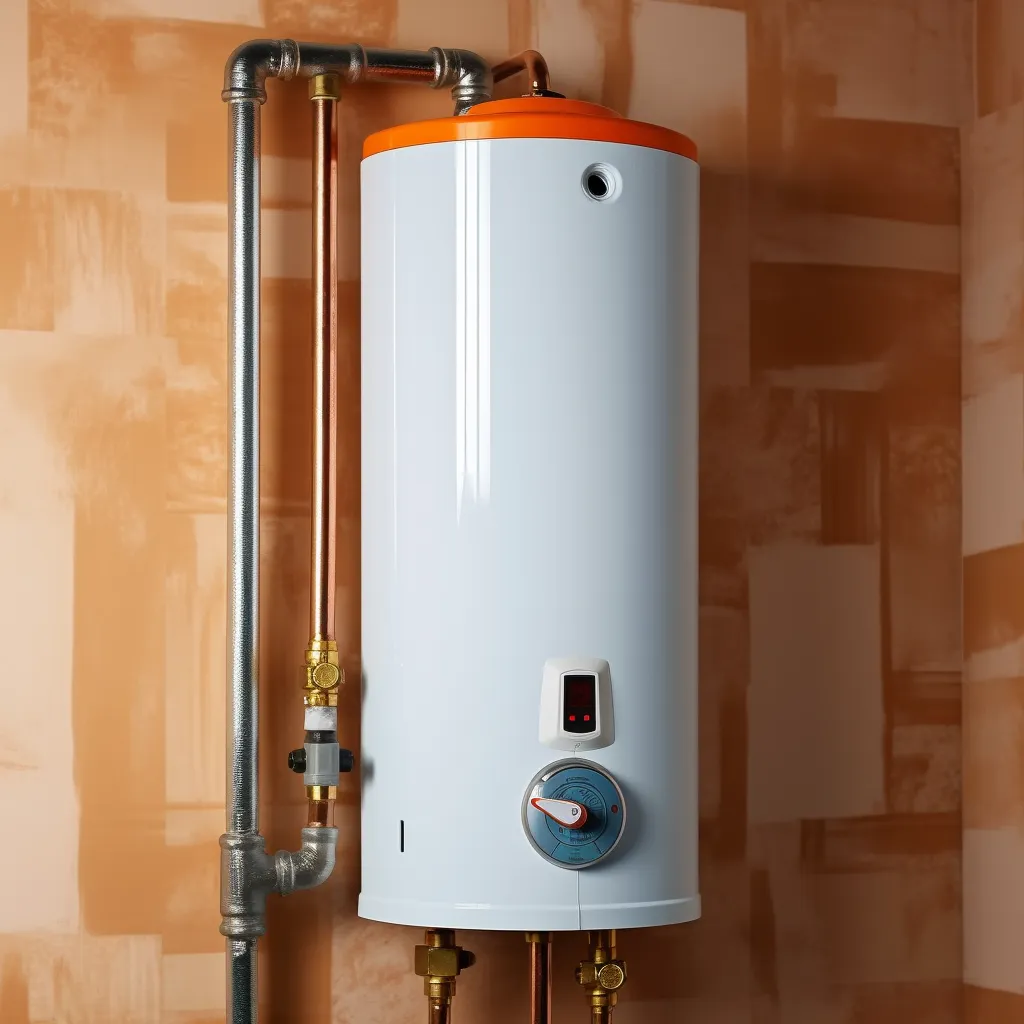
What is the cost to buy and install a condensing tankless water heater?
Condensing tankless water heaters are known for their energy-saving capabilities and improved efficiency. However, it's crucial to consider the overall costs involved, including factors such as home size, specific model, and brand, which can impact the price. Installation complexity should also be taken into account.
To ensure you make an informed decision and choose the best condensing tankless water heater for your needs, it is highly recommended to consult a trusted professional. Their expertise can offer valuable guidance in selecting the right unit for your home.
Although the initial cost of a condensing tankless water heater may be higher, many homeowners discover that the long-term benefits outweigh the investment. With energy savings and improved efficiency, substantial cost savings can be achieved over the years, making it a worthwhile choice for those seeking an efficient and sustainable water heating solution.
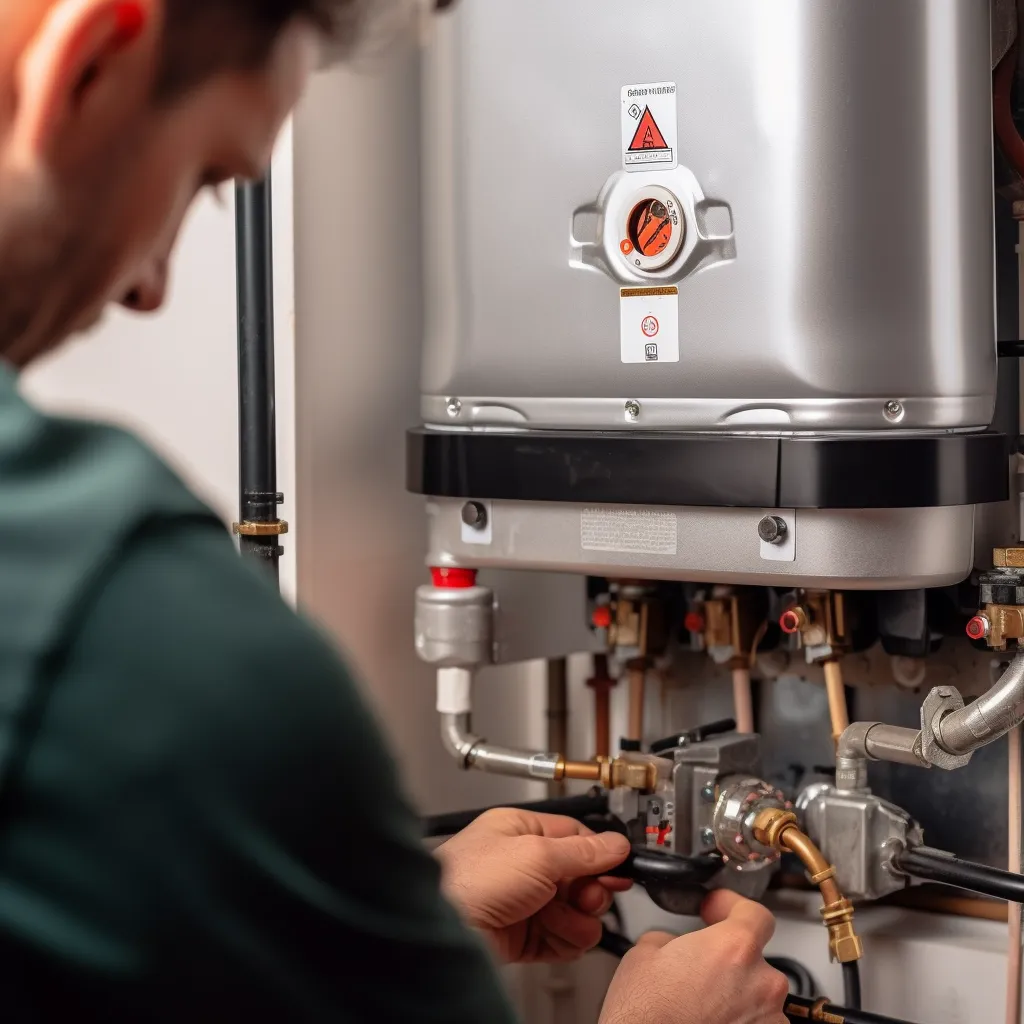
What is the cost to buy and install a non condensing tankless water heater?
Non-condensing tankless water heaters come in different sizes and are offered by well-established brands. They generally range in price from $1,000 to $3,000. While they may require a higher upfront cost, these tankless water heaters deliver exceptional durability and can supply unlimited hot water for a remarkable twenty years. Additionally, their compact and stylish design allows for space-saving installation, helping to minimize clutter within your household.
Condensing tankless water heaters maintenance requirements?
One of the advantages of non-condensing tankless water heaters is their sleek and compact design, which not only saves space but also reduces clutter in your home. To ensure optimal performance and longevity, it is important to conduct regular maintenance checks. Here are some key steps to follow:
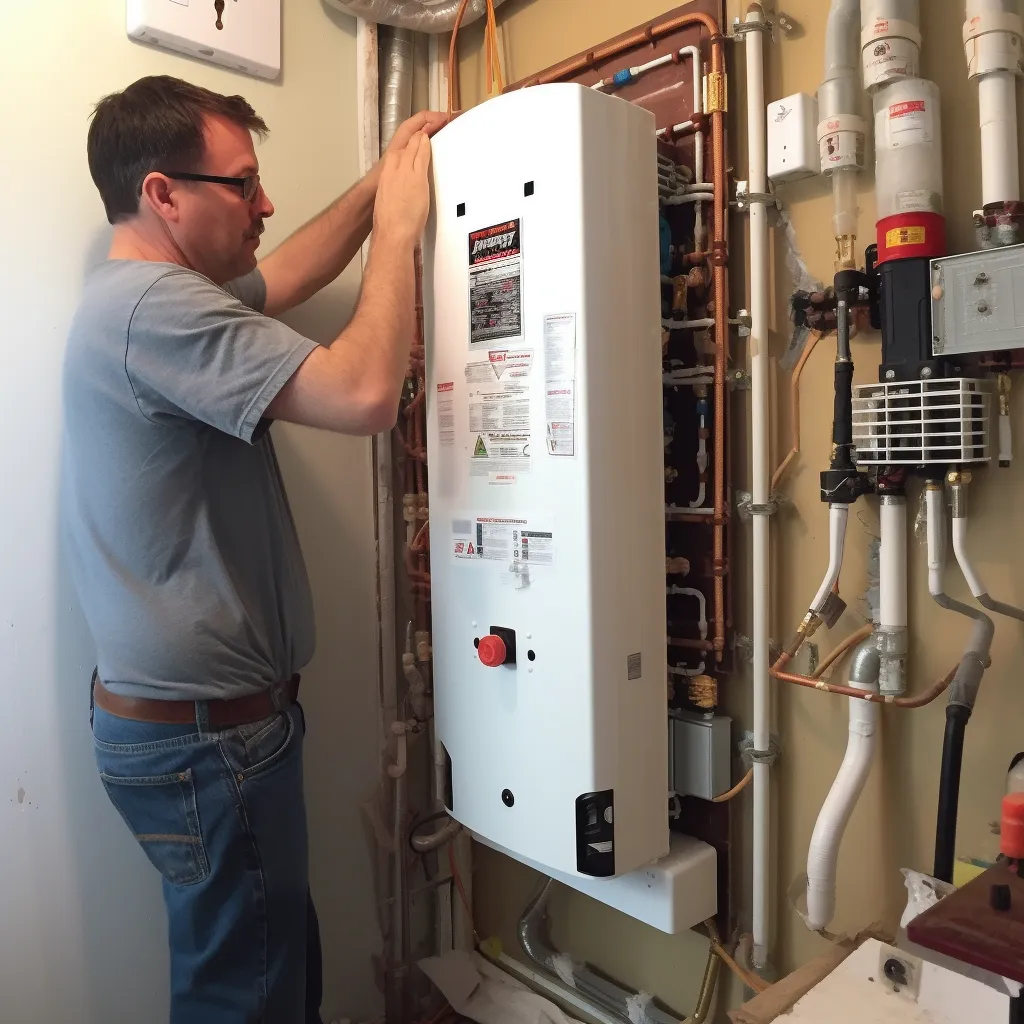
Verify for leaks or potential issues.
Clean the heat exchanger and burner.
Inspect and replace filters to maintain efficiency.
Test water pressure and temperature for optimal function.
Ensure the venting system is free of debris.
Flush the system regularly to remove sediment buildup.
Check the cleanliness of the air filter.
Regular maintenance is vital for optimizing the performance of tankless water heaters and avoiding various problems, including increased energy expenses, reduced efficiency, and potential damage. To keep your water heater in top-notch condition, it is advisable to arrange periodic professional maintenance checks. By taking a proactive approach to maintenance, you can save valuable time and money in the long term while ensuring that your water heater operates at its peak efficiency and effectiveness.
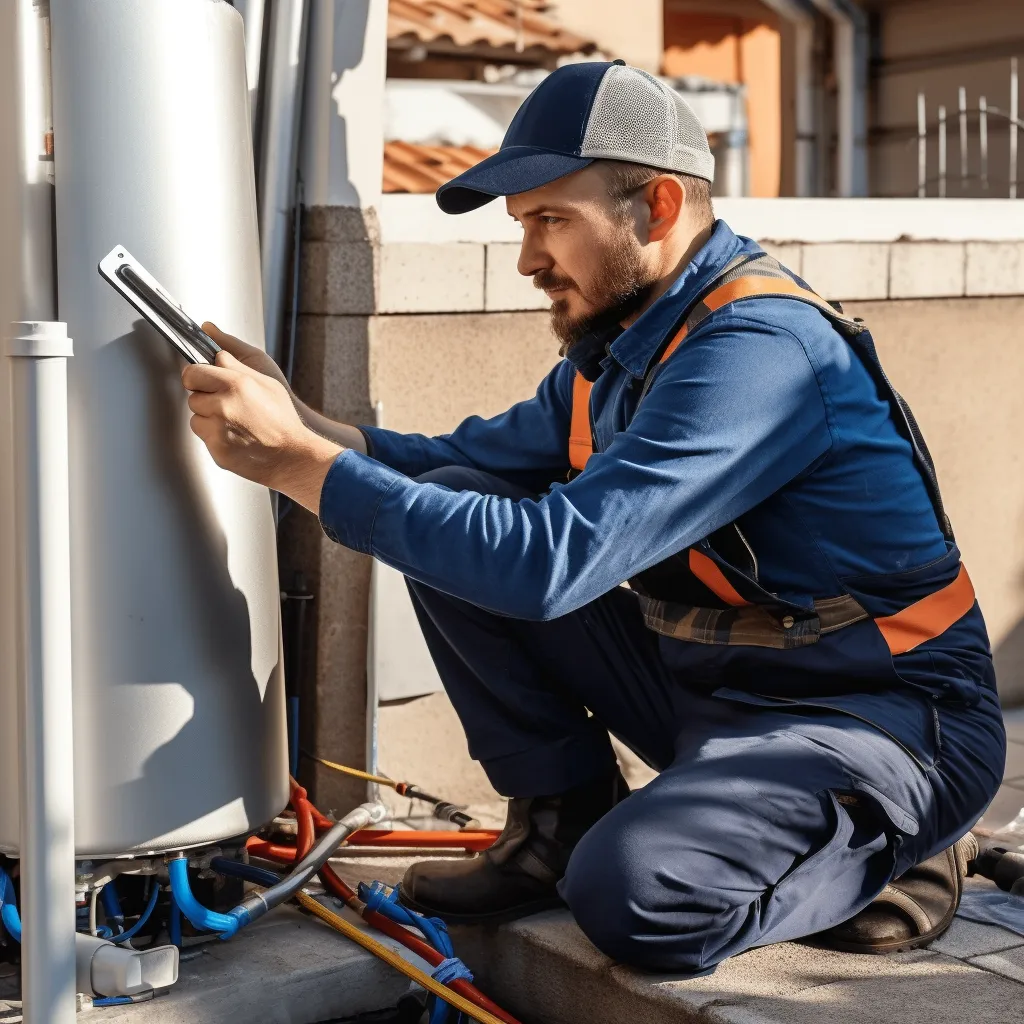
What are the maintenance requirements
for non condensing tankless water heaters?
To maintain non-condensing tankless water heaters, it is crucial to follow similar maintenance requirements as condensing units. Regular upkeep is necessary to ensure the efficient operation of the unit and prevent potential problems. Here are some essential maintenance tasks to consider:
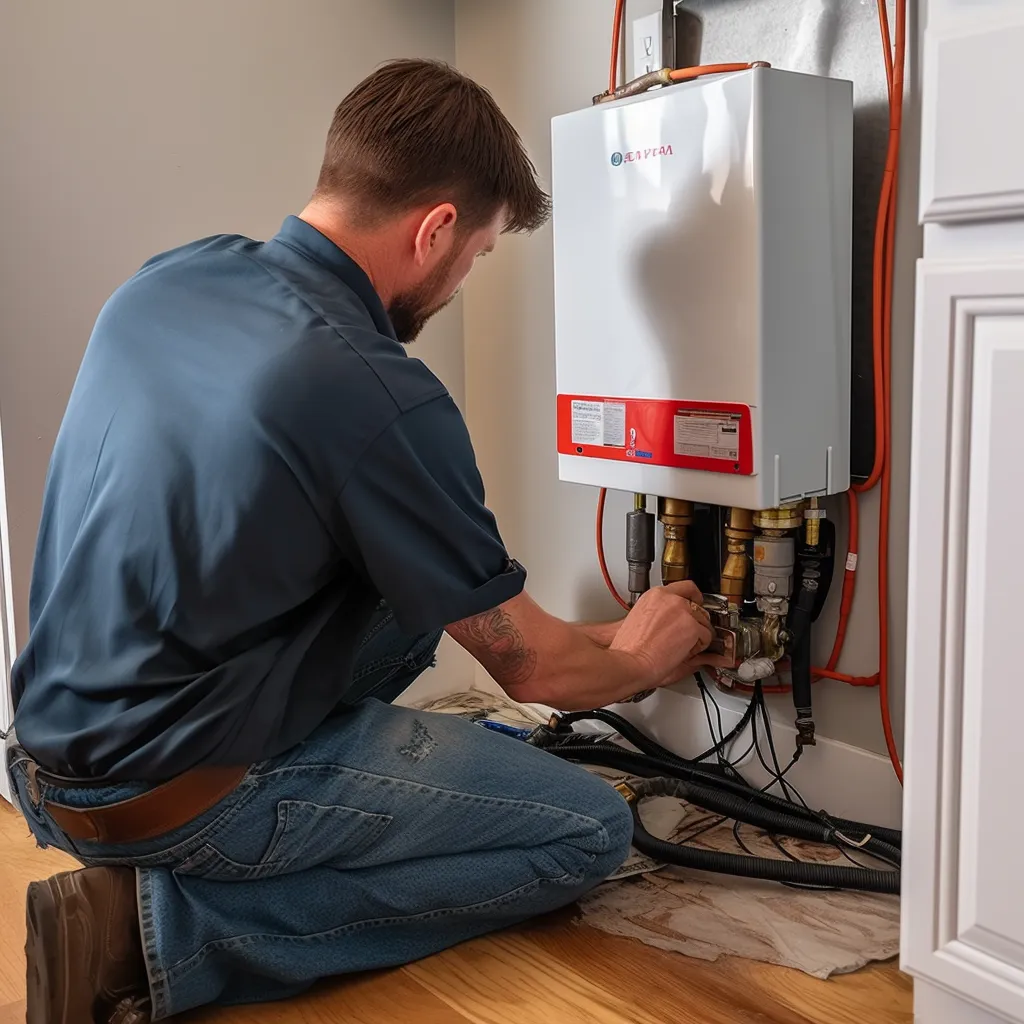
Flushing the system on a regular basis is important to eliminate mineral buildup and debris that can adversely affect the performance of the water heater.
Regularly checking the unit filters is crucial. Replace them as necessary to ensure proper flow and prevent any potential clogging issues.
Cleaning the heat exchanger and burner is essential to remove any buildup that could impact the efficiency of the unit and hinder effective heat transfer.
It is important to inspect the water heating system periodically for any malfunctions or leaks. Address any identified issues promptly to prevent further damage and maintain optimal functionality.
Regularly verify the water pressure and temperature to ensure they fall within the recommended range for optimal performance and to avoid any potential problems.
To maintain proper airflow and prevent ventilation issues, it is important to keep the vents clear of debris.
What to think about when choosing between a
non condensing vs condensing tankless water heater
When making a choice between a non-condensing and a condensing tankless water heater, there are several important factors to consider:
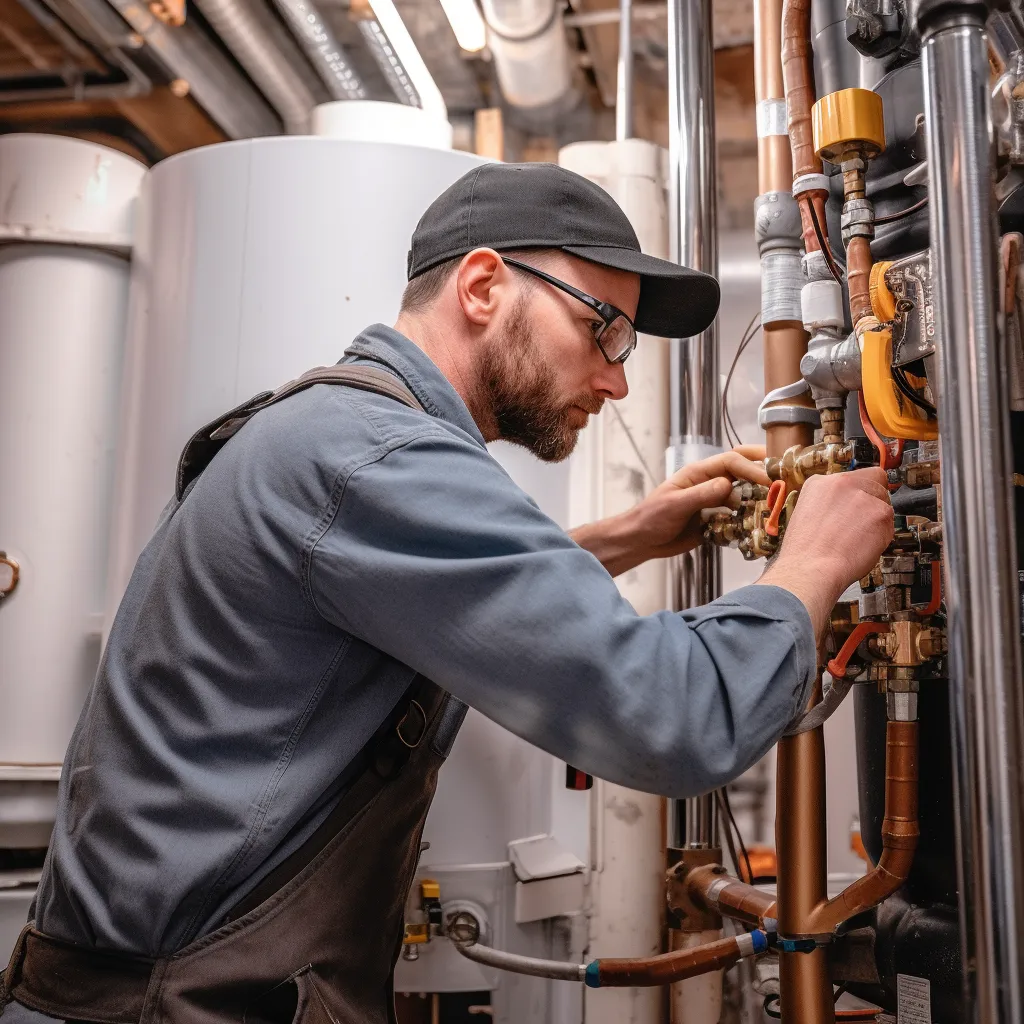
One key aspect to keep in mind is the size and space availability. Non-condensing water heaters tend to be bulkier, which may pose a challenge if you have limited space. In such cases, opting for a condensing water heater would be a more suitable option.
Installation complexity is another crucial consideration. Non-condensing units generally require a more intricate installation process, which can lead to higher overall costs. On the other hand, non-condensing units offer a more straightforward and budget-friendly installation.
Maintenance requirements also play a role in decision-making. Non-condensing tankless water heaters generally necessitate more frequent upkeep compared to condensing models. It's essential to factor in your maintenance preferences when deciding between the two.
Energy efficiency is a significant advantage of condensing units. They consume less energy, leading to long-term savings on utility bills. If energy efficiency is a priority for you, opting for a condensing water heater is recommended.
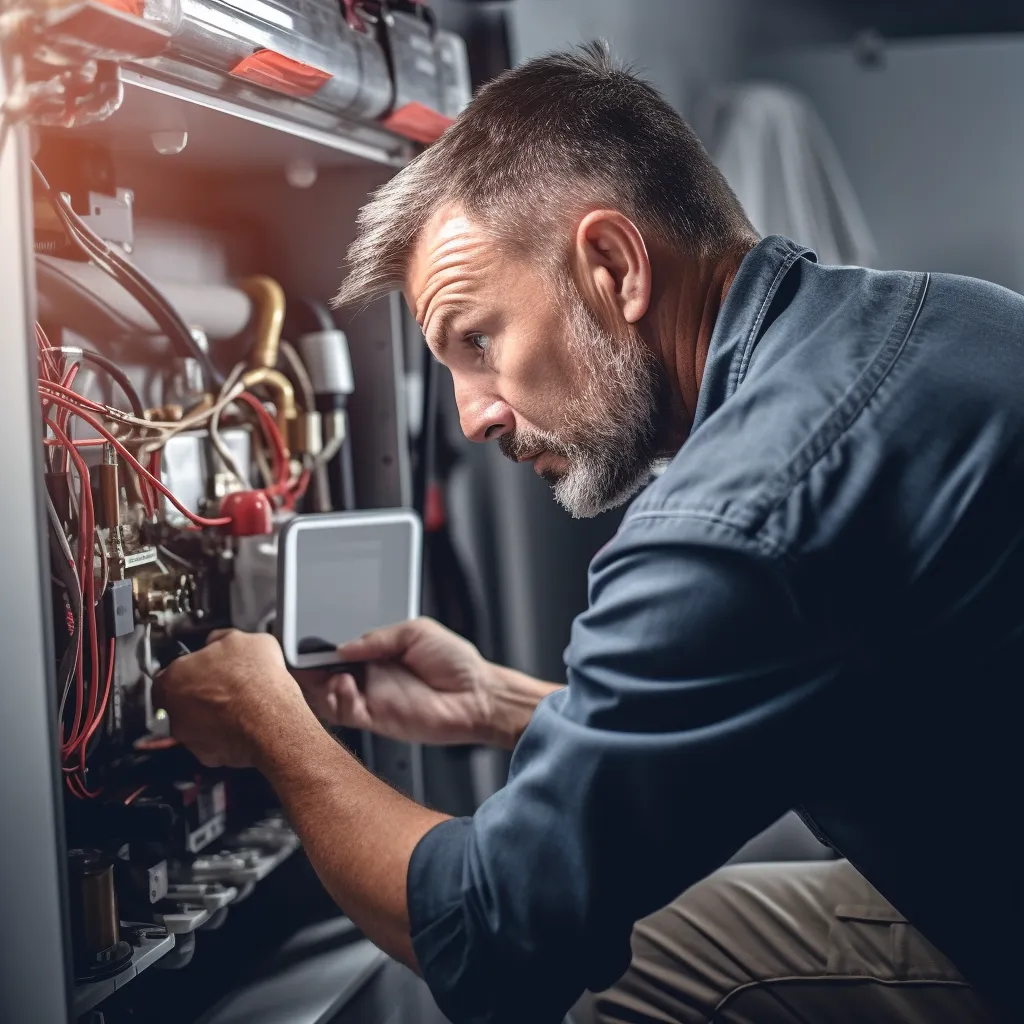
Researching condensing vs non condensing tankless water heaters
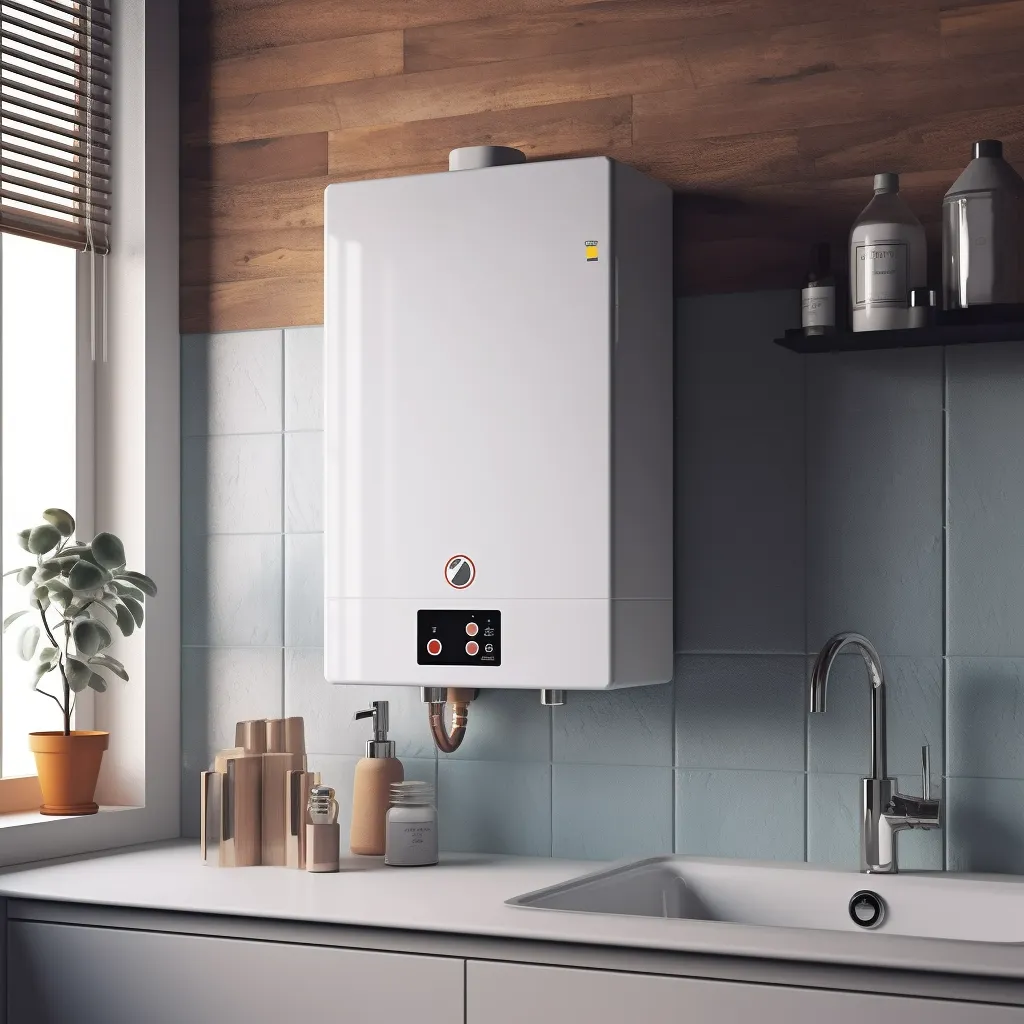
To find the ideal tankless water heater for your home, it's essential to consider the pros and cons of different types. One crucial decision is choosing between a condensing or non-condensing unit. While non-condensing units may seem more affordable initially, it's important to note that they can waste energy and require more maintenance. On the other hand, condensing tankless water heaters offer greater cost-effectiveness and can lead to lower utility bills. By carefully comparing your options and selecting the right water heater type, you can enjoy a consistent supply of hot water while saving energy.
It is crucial to emphasize that choosing the perfect tankless water heater is a personalized decision that requires consulting a licensed professional who understands the specific requirements of your home. Their expertise can provide invaluable guidance to help you make an informed choice that precisely meets your home's needs.
Contact Us
GET IN FULL TOUCH
PHONE:+(702) 935-6990
EMAIL:
stephen@waterheaterlasvegas.com
Las Vegas, NV 89183
